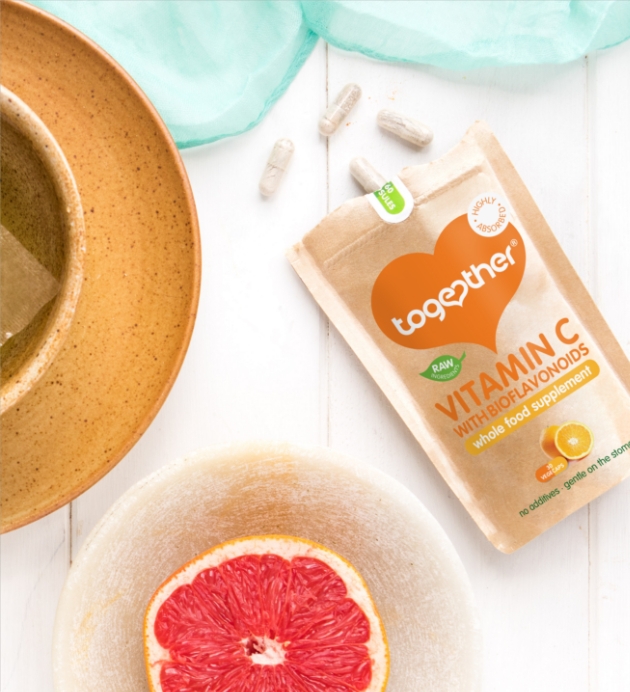How to Transition Your Skincare Routine for Spring with Dr Preema Vig
We asked Dr Preema Vig, medical director and skin expert at...
What is Vitamin C? What does it do for you? What happens when you don't have enough? Lola Biggs, registered Dietician at natural health brand Together Health explains.

|
What is vitamin C?
Vitamin C, also known as ascorbic acid, is a water-soluble vitamin that's naturally present in some foods, but can also be added to others as well as being available as a supplement. We can’t actually produce vitamin C in our own bodies, so a daily dose of this feel-good vitamin is a necessity.
What does it do for you?
Vitamin C has many health benefits. A fantastic beauty booster – it’s a powerful antioxidant and vital for the formation of collagen and can slow down the rate of damage caused by free radicals. It aids healthy cell growth and repairs every part of our body and is also a brilliant immunity booster, encouraging the production of white blood cells, which fight against infection.
What happens when you don't have enough?
Serious deficiency is rare, however, symptoms of low levels of vitamin C can include irritability and low moods, dry skin and hair, fatigue, bruising easily and bleeding gums. The UK government recommends adults have at least 40mg a day – I’d say try and aim for your five a day to ensure you get enough, and remember that it’s about eating a plate of rainbow colours.
Why do we need it in winter, specifically?
Many of us struggle from a range of vitamin and mineral deficiencies specifically during the colder months. Winter is cold and flu season and cold conditions make us more susceptible to illness so having enough vitamin C can help improve a flagging immune system and keep the bugs at bay.

|
Which foods can we find it in?
It’s abundant in fresh vegetables such as dark leafy veg like kale and spinach. Also go for brightly coloured fresh fruits and veggies like kiwi, oranges, blackcurrants, strawberries, peppers and tomatoes. If you find it a struggle to eat your five a day, try juicing. It’s a quick, easy and effective way to get your vits and you can use what you have in the freezer if you don’t have fresh. One of my favourites is carrots, beetroot, kale, ginger and orange. It contains potassium, vitamin A, B-6, B-9 and C all in one glass and is brilliant for bumping up beta carotene levels needed to synthesise vitamin A and antioxidants that protect every cell in the body.
What are the best products out there containing it?
Look out for vitamin C supplements that are as natural as possible and that include natural bioflavonoids (this is the powerful plant compounds that aid added immune support and help with vitamin C absorption), enzymes, cofactors (these are essentially helper molecules that allow biochemical reactions to occur) and vitamin C in its whole food form as our bodies understand them better and this makes them more effective and easier to absorb.